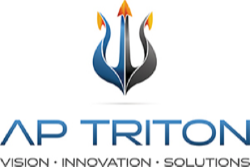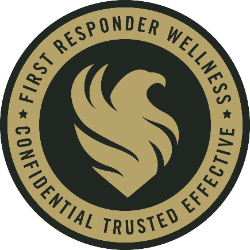Fire Chiefs Leadership Seminar
December 11-12, 2024
The Meritage
875 Bordeaux Way, Napa, CA
Designed for fire service leaders including, but not limited to, fire chiefs, chief officers, and union leadership, this seminar provides sessions on topics such as leadership, succession planning, labor relations, emergency response, late-breaking changes in EMS, and more.
For registration questions, please contact Registrar, Megan Dunn.
For sponsorship questions, please contact Associate Manager, Exposition Sales and Event Sponsors, Amy Wade.
For additional questions, please contact Associate Manager, Erin Wylder.
Seminar Information
Click here to view the 2023 Fire Chiefs Leadership Seminar program.
2023 Session Materials
- Fire Hazard Mapping
- Legislation Updates
- Righting the Ship and Thriving in Leadership
- Sleep Hygiene and Why Its Important
- Statewide EMS Updates and PP-GEMT
- The Catalyst
- What Fire Chiefs Need to Know About Finance Today
- Workers Comp Perspectives
Previous Seminar Session Materials
- 2022 Fire Chiefs Leadership Seminar Program
- 2022 Fire Chiefs Reception Flyer
- Speaker Bios
- Cal Cities Legislative Update - Noack
- Difficult Conversations Way to Bypass Conflict
- Inclusion, Equity, & Diversity Effective Tools for Succession Management
- Using a Coaching Mindset to Increase Fire Team Performance - Coyle
- Creating Resilient and Brain-Healthy Fire Departments
- Diversity, Equity, and Inclusivity In the Fire Service: Navigating And Implementing Strategies For Chiefs
- Recruiting, Hiring, and Promoting the Right People for Your Agency
- The Set-Up Of Successful Leadership 2.0
- Understanding the Legislative Process - Dolfie
Call for Proposals
Cal Cities is seeking thorough, thoughtful, and complete proposals that tell how your session can help fire chiefs improve their communities, leadership abilities, and knowledge within their roles. The call for proposals for the 2024 Fire Chiefs Leadership Seminar is open through Friday, June 14, 2024.
We encourage you to take advantage of this exciting opportunity to share your ideas, knowledge, and expertise with this important audience! For questions, please contact Erin Wylder.
Who Can Submit
How It Works
Only proposals submitted online through the proposal form will be considered. We recommend drafting the proposal in a word-processing program first, then pasting the final version into the online submission form so you retain a copy for your records. Please be aware that some formatting, like bullet points or bolded text, may not transfer when submitted. When typing directly into the submission form, you may encounter a character limit.
Target Audience
This educational event is designed to keep fire chiefs up to date on issues of importance to them and their cities.
Securing a spot on the program is highly competitive, with approximately 25 percent of proposals being accepted. You can increase your chances by preparing a thorough, thoughtful, and complete proposal that tells how your session would help fire chiefs and those who work within city governments to improve their careers and communities. When preparing your proposal consider the following elements:
- Is the topic new and/or critical for city government?
- Will it draw a wide audience?
- Will this issue stimulate action and further important discussion?
- Does the panel reflect the diversity of California cities (north/south, large/small, urban/rural)?
Tips for Successful Proposals
- Think big
- Vary the viewpoint
- Pare down the panel
- Speaker skills matter
- Plan for a crowd
- Try something new
- Interact with the audience
- Fill in the blanks
- Quality counts
Types of Proposals
More than 95 percent of each year's conference programming comes directly from the open call for proposals. Sessions may be scheduled as a general session or concurrent session at Cal Cities' discretion. Select one of the available formats listed below that best fits your topic and desired outcomes or propose an alternative session format.
- Keynote Speaker
This format permits approximately 45-60 minutes of an engaging presentation by a single speaker. Depending on time restrictions, the presentation may be followed by approximately 15 minutes of questions and answers with the audience or a moderator. - Panel Discussion
Panels consist of a moderator and a maximum of three speakers who participate in a 60 minute engaging presentation and discussion followed by approximately 15 minutes of questions and answers. - Speed Sessions
Fifteen minute bursts of information on one topic by one speaker followed by five minutes of questions & answers. Typically, these engaging presentations are based on focused projects or personal experience. - Facilitated Discussion
An interactive conversation with attendees on the selected topic. A facilitator may offer a maximum of a 10 minute presentation on which the issue/concern is framed for the attendees and then guide the discussion with prepared questions. At the conclusion of the discussion, the facilitator will spend some time summarizing key findings, suggestions, and points. In total, this session is scheduled for 75 minutes. - Alternative Format
Be creative! If your session does not fit one of the above formats, this is your opportunity to propose something different. Please be sure to provide the time, room setup, and other important details. Alternative formats will be accommodated based on interest level, space, and set-up availability.
Submission Requirements and Review
Successful Proposal Considerations
- Relevance - What are the practical applications of your ideas? Have you included reasoning and documentation to support your conclusions, recommendations and outcomes? Conference attendees prefer presentations focused on outcomes or results. Make the definition and background portions of your presentation brief. Highlight problems encountered, options available, choices made, documented pre- and post-change effects and lessons learned.
- Content expands attendees' knowledge - Will your presentation expand knowledge beyond entry-level basics? Most conference participants are elected officials, appointed officials, and seasoned professionals. In general, direct your presentation to an intermediate or advanced audience.
- Originality - Does your presentation advance existing ideas or present new ideas? Has this material been presented elsewhere? You might apply proven techniques to new problems or identify and apply new approaches, methods or philosophies. Assess the degree to which an application is a new tool. Avoid highlighting a named product or service…focus instead on the general attributes, benefits and drawbacks of a given application, process or tool.
- Examples - Do you have an appropriate number of examples? Documenting comparative results convinces participants that your ideas have been tested in the real world.
- Timeliness - Will your presentation still be up-to-date and cutting-edge in six to nine months when the conference occurs? Will your topic have implications in the future? How relevant is your topic in the context of pending legislation, regulations and technology?
- Inclusion of good, solid insights - What attendees want to learn is the reality versus the hype, the positive and negative attributes, problems encountered but not often discussed, realistic expectations for the operational use and adaptability to a changing environment. They are searching for guidelines and models to simplify or manage their own application or installation.
- Logical conclusions - Are your conclusions supported by data? Attendees place a high value on supporting data in assessing the value and applicability of presentations. Include adequate and convincing details.
- Identification of outside resources - Have you included sources of information, benchmark data or other examples?
- Avoidance of product/vendor commercial - No commercials and/or proprietary information for particular products, services or vendors are permitted.
- Completeness of proposal - The quality, completeness and accuracy of the proposal will be considered during session selection process.
- Preferred Speaker Qualifications - Panelists should reflect the diversity of California with a north/south, large/small, urban/rural representation when possible.
- Five or more years of public presentation experience.
- Two or more years of experience related to working in or presenting on the topic or idea.
- More than two successful speaking engagements to large audiences at a regional or state level in the past two years.
- Must not pose a conflict of interest with subject/business area or must disclose such information in each speaker bio submitted.
- No commercialism.
- Overall - In the end, you must make your case for the importance of this topic and its relevance to participants.








---nationwide-com.jpg?sfvrsn=47bf871_4)
